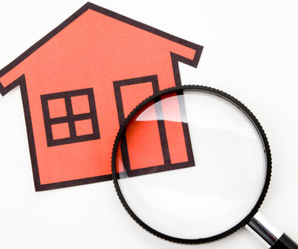by Joshua Walitt
I would say that a good percentage of my business is related to families buying or refinancing homes. Maybe it’s a first time purchase for a young family just starting out or an existing family refinancing their home for improvements or sending one of their kids to college. In these cases I deal primarily with the lenders, appraisal management companies, and real estate agents. What people don’t realize is that a fair amount of my business comes from attorneys needing property valuations for a variety of legal matters. Sometimes it’s still family related such as divorce, personal bankruptcy, or clearing up an estate issue.
Times When an Attorney Will Need a Residential Property Appraisal
Divorcee:
When two parties decide to end a marriage they are going to need a valuation of properties jointly owned. In Colorado, a current valuation on all marital real estate holdings will likely be required by the attorneys or the judge. Appraisals will definitely be required if there is any dispute between the parties for settlement purposes. Since disputes often occur over the perceived values of marital properties during a divorce this is the most common reason for a lawyer needing to hire a real estate appraiser. Often I can suggest the most effective scope of work for precise documents to be utilized in court for my attorney clients.
Bankruptcy:
If you own a home and decide to declare bankruptcy the court is going to require a current property valuation. At this time your bankruptcy attorney is going to have to call a residential real estate appraiser to satisfy the court’s valuation requirements.
Bail Bonds:
When an attorney’s client is arrested often the court will set bail and the defendant will post bond. These bail bonds are usually secured against real estate property. Because of this, the bail bond company may require a property valuation to make sure there is enough equity in the home to secure the bail bond. These types of property valuations are often satisfied with what is known as a “Desktop” appraisal.
Estate Planning/Wills/Probate:
Here in western Colorado I’ve seen several instance of what can happen regarding real property when it comes to estate planning and probate. The executor of a trust needs strong numbers to satisfy IRS and various state and county agencies. Now for tax planning reasons a trust or tax attorney will call a real estate appraiser to value a property prior to it be entered into the trust. An executor settling a will might need an appraisal to determine Market Value of the property at the time of fatality. And unfortunately if estate planning didn’t occur and a property goes into probate, a real estate appraiser may be called in by an attorney to provide a value.
Property Tax Assessment Appeal:
If you live in Garfield, Delta, Montrose, or Mesa county in Colorado and believe you’re overpaying on property taxes; you’ll need to go and dispute your property tax bill at the county assessor’s office. If you are working with an attorney specializing in property tax law they will need to order an appraisal to determine whether the property’s value is less than what is on the county tax rolls to apply for a reduction. Attorneys need to be confident that they are working with a real estate appraiser who provides iron clad property valuations that will stand up to county scrutiny and help win the property tax reduction. I myself have value dispute experience with the county.
These are just a few of the situations why an attorney would order an appraisal for residential properties. I know from personal experience that an expert appraiser can provide key and instrumental evidence with a quality appraisal.
The above statements are for informational purposes only and not for the purpose of providing legal advice. You should contact your attorney to obtain advice with respect to any particular issue or problem. The opinions expressed at or through this article are the opinions of the individual author and may not reflect the opinions of the firm or any individual attorney.
WATCH Related Tutorial Video: Why Real Estate Agents Order Appraisals VIDEO

